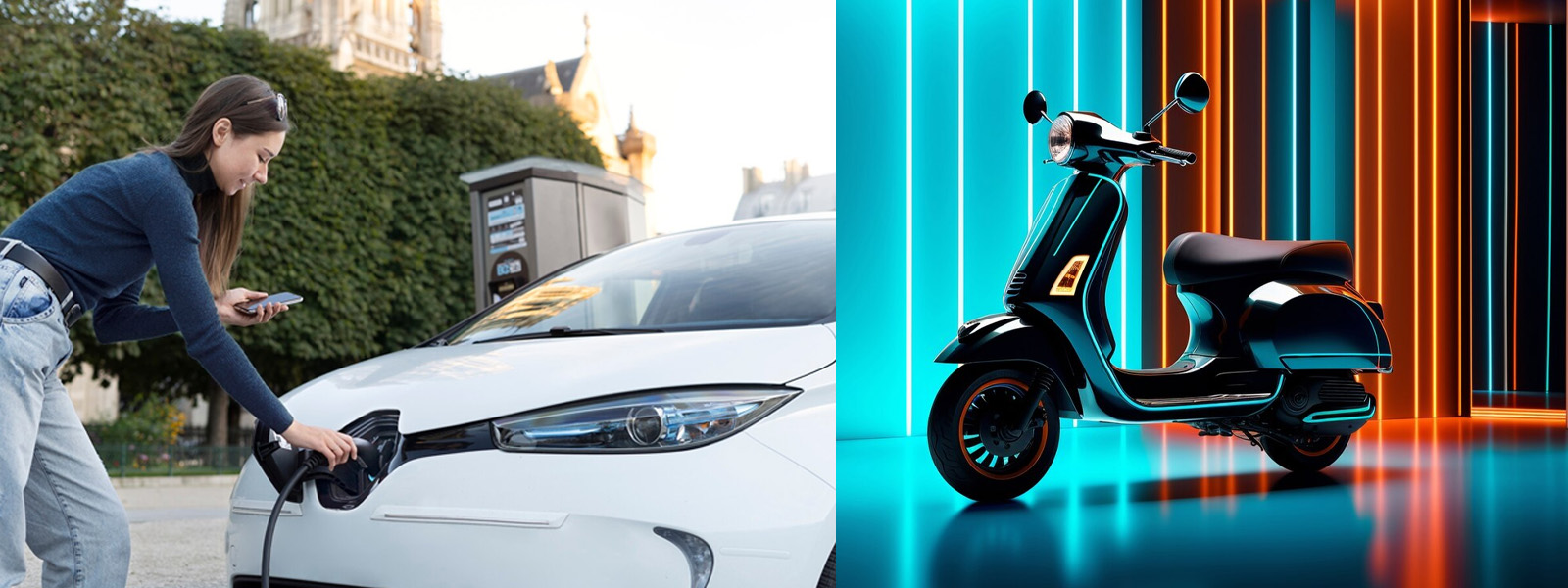Tech-Driven Research: Pioneering the Future of Electric Mobility
Published 02 March 2024
Technologies
By Elite Digital Team
Tech-driven research is at the forefront of pioneering the future of electric mobility. Through innovation and development, researchers are working on advancements like improved battery technology, charging infrastructure, and smart grid integration to make electric vehicles more efficient, accessible, and sustainable for a greener future.
Intelligent Driving
Driving behavior and vehicle usage patterns refer to the manner in which a vehicle is operated and the usage patterns of that vehicle over time. In the context of IoT-connected vehicles, sensors and data analytics tools are used to monitor and analyze driving behavior and vehicle usage patterns, such as acceleration, braking, distance traveled, traffic patterns, and route preferences. This data can then be used to optimize driving behavior, improve fuel efficiency, plan for predictive maintenance, and improve overall safety. By understanding driving behavior and vehicle usage patterns through IoT connectivity, individuals and organizations can make data-driven decisions to improve the performance and longevity of their vehicles, while also promoting safer and more efficient driving practices.
Driver Behavior Definitions
Driver Behavior component : The driver behavior component focuses on analyzing the actions and habits of drivers, including acceleration, braking, speed variations, adherence to traffic rules, and overall driving style. This component provides valuable data for improving driver safety, assessing risk factors, and developing advanced driver-assistance systems, ultimately enhancing road safety and optimizing vehicle performance.
Driving Behavior Analysis: Driving behavior analysis involves using IoT sensors and data analytics to track and analyze the patterns and habits of drivers while behind the wheel, including acceleration, braking, cornering, adherence to traffic rules, and overall driving style. This data can be leveraged to improve driver safety, optimize fuel efficiency, and assess risk factors.
Trajectory Pattern Analysis : Trajectory pattern analysis involves examining the movement patterns and routes taken by vehicles over a period of time. By analyzing trajectory patterns, insights can be gained regarding traffic flow, congestion, popular routes, and alternative routes. This information can be used to optimize transportation planning, improve traffic management, and enhance overall driving efficiency
Driving behavior plug-in : The Driving behavior plug-in is a customizable component of the Driving behavior analysis feature. It allows users to define the specific metrics and driver behavior they want to analyze using the Driver Behavior component, enhancing flexibility and relevance in data analysis.

Driving Behavior Analysis
With advancements in technology, driving behavior analysis can now be done in real-time using telematics and GPS tracking. This allows for immediate feedback and intervention, helping to correct unsafe driving behaviors and promote a culture of safety within an organization.
- Aggressive acceleration
- Harsh braking
- Rapid acceleration
- Slow driving
- Sudden acceleration
- Harsh throttle
Configuring Driving Behavior Analytics
Configuring driving behavior analytics involves setting up a system that collects and analyzes data on how individuals drive, providing insights on their behavior and helping improve road safety.
- Frequent Braking
- Speed Limit
- Vehicle Turn Angle Ranges
- Frequent Acceleration and Deceleration of Vehicle Speed
- Harsh Acceleration and Deceleration
- Other Braking Issues
Power Electronics and Motor Efficiency
Another critical aspect of tech-driven research in electric mobility is improving power electronics and motor efficiency. Researchers are exploring new semiconductor materials and designs to develop power electronics that are smaller, lighter, and more energy-efficient. Additionally, optimising electric motor efficiency through research allows for better energy utilisation and increased driving range.
Intelligent Charging Solutions and Infrastructure
Intelligent charging solutions and infrastructure are revolutionizing the way we recharge electric vehicles. These advanced systems leverage smart technology to optimize charging processes, maximize efficiency, and reduce strain on the electrical grid. They include features like demand response capabilities, dynamic pricing, and remote monitoring to intelligently manage charging loads. Additionally, the integration of renewable energy sources and energy storage solutions enhances sustainability and grid resilience. With intelligent charging solutions, EV owners can enjoy faster, more convenient charging, while the overall charging ecosystem becomes more intelligent and efficient.
Autonomous and Connected Driving
Tech-driven research is also driving advancements in autonomous and connected driving in the electric mobility sector. Companies and researchers are developing advanced driver assistance systems (ADAS) that enhance safety, efficiency, and user experience. These systems utilise sensors, artificial intelligence, and connectivity to enable features such as adaptive cruise control, lane-keeping assist, and autonomous parking. By integrating EVs with smart city infrastructure and traffic management systems, researchers are paving the way for highly efficient and integrated transportation networks.
Challenges and Future Outlook
While tech-driven research in electric mobility has made significant strides, several challenges remain. Additionally, recycling and sustainability of battery materials pose environmental concerns that require further research and development.
Conclusion
Tech-driven research plays a crucial role in driving innovation and transforming the electric mobility landscape. Advancements in battery technology, power electronics, intelligent charging solutions, and autonomous driving are propelling the growth of electric mobility. While challenges persist, continued research and investment will lead to a cleaner, more efficient, and sustainable transportation system. As we move towards a greener future, let us embrace the power of technology and strive for a world where electric mobility is the norm.
Read More: Web Application Development Services
Share this article :
[DISPLAY_ULTIMATE_SOCIAL_ICONS]


